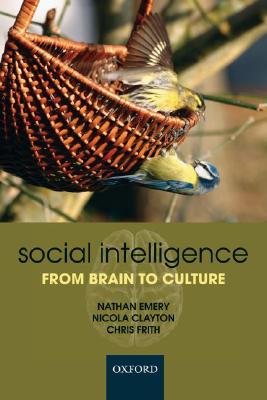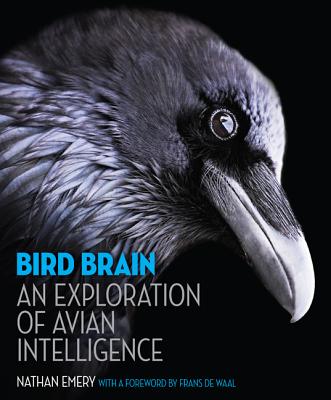Nathan Emery
I’m a Senior Lecturer in Cognitive Biology in the School of Biological & Chemical Sciences at Queen Mary University of London. My research interests are in the intelligence of animals, especially corvids, parrots and primates, and the evolution and psychology of innovation and creativity. I’m currently working with the famous ravens at the Tower of London, and I’m hoping to start a project soon on ratites; ostriches, emus and rheas. This is the earliest evolved group of birds, that has been largely ignored by science, despite potentially telling us about how avian intelligence evolved.
Studies on learning and cognition in ratites may also tell us something about the intelligence of dinosaurs over and above measures of brain size. My first popular science book ‘Bird Brain: An exploration of avian intelligence’ is published by Ivy Press (UK; August 4th) and Princeton University Press (USA; August 30th). The original illustrations I created for this work can be found elsewhere on this site.
I’m on the editorial boards of a number of journals, including the Journal of Comparative Psychology, Animal Cognition and Communicative & Integrative Biology. I have edited two books; Cognitive Neuroscience of Social Behaviour (2005; with Alex Easton for Psychology Press) and Social Intelligence: From brain to culture (2008; with Nicky Clayton and Chris Frith for Oxford University Press).
I have a second life in which I write and illustrate picture books for children focusing on stories involving animals or non-fiction books about evolution, the natural world and teaching children about the behaviour and intelligence of animals. I’m still trying to get my first children’s book published!
Research Interests
My research focuses on animal intelligence and the evolution of cognition, particularly in corvids, parrots, monkeys and apes.
Perhaps surprisingly, we have found striking similarities in the behaviour, ecology, neurobiology and cognitive mechanisms of corvids (crows, rooks, jackdaws and jays) and apes. We suggest that these similarities are adaptations for solving similar social and ecological problems, such as finding, protecting and extracting food and living in a complex social world. My research covers two main areas, social and physical cognition, such as what these birds may know about other minds and what they may know about the properties of objects.
We use both a comparative approach, comparing different species of corvids, and corvids with apes, and an ecological/ethological approach, using information about the natural lives of these birds to design ecologically valid experiments. We currently have large colonies of rooks, jackdaws, Eurasian jays and western scrub-jays housed at the Sub-department of Animal Behaviour, University of Cambridge in large, modern aviaries with state-of-the-art facilities for behavioural observations and cognitive testing.
Much of my corvid research is in collaboration with Professor Nicky Clayton, Department of Experimental Psychology, University of Cambridge, whilst work on the great apes is in collaboration with Dr Josep Call at the Max-Planck Institute for Evolutionary Anthropology, Leipzig, Germany.
Source: Queen Mary University of London
Books by Author
Videos




